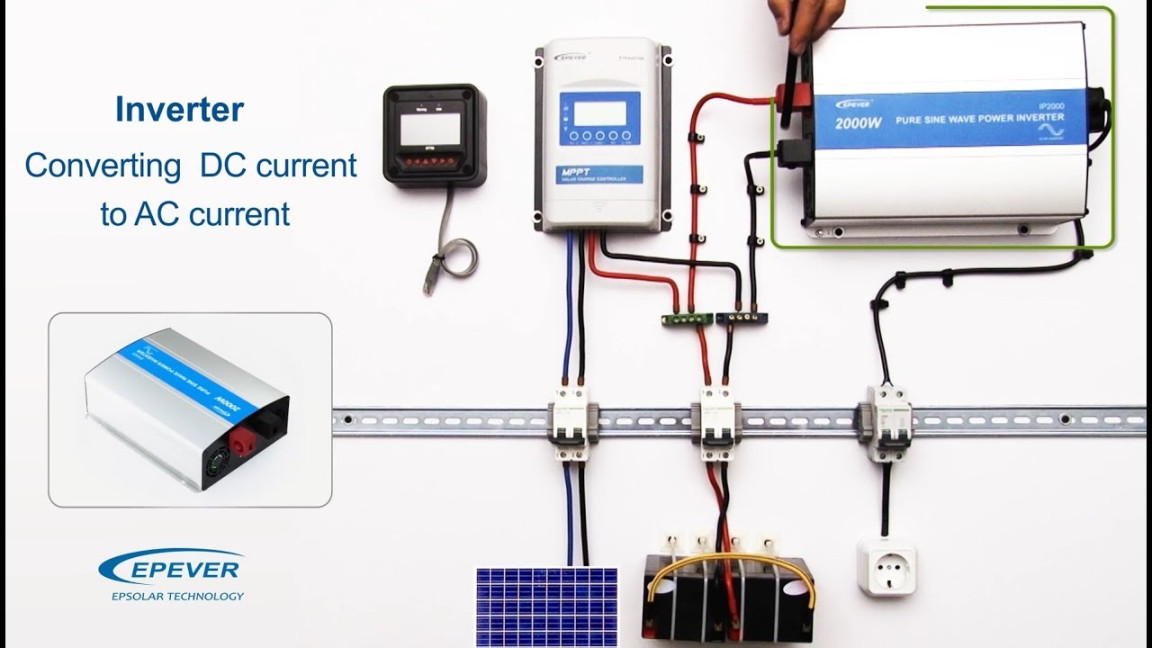Introduction
Living off the grid is a dream for many. It offers a sense of independence, reduces reliance on traditional energy sources, and can be a rewarding experience. While it might seem daunting, installing an off-grid solar system is a viable option for those seeking self-sufficiency. This guide will delve into the essential aspects of planning and executing your off-grid solar installation, from understanding your energy needs to choosing the right equipment and optimizing your system’s performance.
Understanding Your Energy Needs

The cornerstone of any successful off-grid solar system is a clear understanding of your energy consumption. This involves meticulously tracking your electricity usage to determine your daily, weekly, and monthly energy requirements. Factors such as the number of people in your household, appliance usage, and seasonal variations in energy consumption will influence the size and capacity of your system.
Lighting: The Heart of Your Off-Grid Home
Proper lighting is crucial for both functionality and ambiance in an off-grid home. LED lights are the preferred choice due to their energy efficiency and long lifespan. Consider a combination of overhead lighting, task lighting, and accent lighting to create a versatile and comfortable living space.
Color Palette: Enhancing Your Off-Grid Abode
The color scheme of your off-grid home can significantly impact its atmosphere and energy efficiency. Light colors reflect sunlight, helping to keep your interior cool during warmer months. Incorporate natural colors inspired by your surroundings to create a harmonious connection with the outdoors.
Furniture Selection: Comfort and Efficiency
Choosing the right furniture for your off-grid home is essential for maximizing space and comfort. Opt for multifunctional pieces that serve multiple purposes. Consider using materials like wood and natural fibers that are sustainable and contribute to a warm, inviting atmosphere.
Material Choice: Sustainability and Durability
The materials you select for your off-grid home should be durable, low-maintenance, and environmentally friendly. Recycled and reclaimed materials can add character to your space while reducing your ecological footprint. Insulation is crucial for maintaining a comfortable indoor temperature year-round.
Accessories: Adding Personal Touches
Accessories can transform your off-grid home into a personalized sanctuary. Incorporate natural elements like plants, stones, and textiles to create a connection with the outdoors. Handmade crafts and locally sourced items can add unique character to your living space.
Layout and Design: Maximizing Space and Efficiency
The layout of your off-grid home should prioritize functionality and energy efficiency. Open floor plans can create a sense of spaciousness, while well-designed storage solutions help to maximize available space. Consider passive solar design principles to harness natural sunlight for heating and lighting.
Views and Orientation: Connecting with Nature
Taking advantage of natural views is a key element of off-grid living. Orient your home to maximize sunlight and passive ventilation. Large windows can bring the outdoors in, creating a feeling of openness and connection to your surroundings.
Choosing the Right Solar Panels
Solar panels are the heart of your off-grid system. Factors to consider include panel efficiency, size, and orientation. The tilt angle of your panels should optimize sunlight absorption throughout the year.
Battery Storage: Powering Through the Night
Batteries store excess solar energy for use during cloudy days or nighttime. Consider factors like battery capacity, depth of discharge, and lifespan when selecting the right battery bank for your system.
Charge Controller: Protecting Your System
A charge controller regulates the flow of electricity between your solar panels and batteries. It prevents overcharging and protects your system from damage.
Inverter: Converting DC to AC Power
An inverter converts the DC power from your batteries into AC power for running household appliances. Choose an inverter with sufficient wattage to handle your energy needs.
Installation and Wiring: Safety First
Proper installation and wiring are crucial for the safety and efficiency of your off-grid system. Seek professional help if you’re unsure about any aspect of the installation process.
Monitoring and Maintenance: Optimizing Performance
Regular monitoring and maintenance are essential for maximizing the lifespan and efficiency of your off-grid system. Keep track of solar panel performance, battery health, and overall system output.
Conclusion
Embarking on an off-grid solar installation is a rewarding journey towards self-sufficiency and environmental responsibility. By carefully considering your energy needs, selecting the right equipment, and prioritizing sustainability, you can create a comfortable and efficient off-grid home. Remember, planning and preparation are key to a successful installation.
FAQs
1. How much does an off-grid solar system cost?
The cost of an off-grid solar system varies depending on factors such as location, system size, and equipment choices. It’s essential to create a detailed budget before starting your project.
2. Can I run all my appliances on an off-grid system?
While it’s possible to run most household appliances on an off-grid system, energy efficiency is crucial. Consider energy-efficient alternatives and prioritize essential appliances.
3. How long do off-grid solar systems last?
Solar panels typically have a lifespan of 25-30 years, while batteries may need replacement every 5-10 years. Regular maintenance can extend the life of your system.
4. What happens during power outages?
An off-grid solar system provides power independently of the grid, so you won’t be affected by power outages. However, it’s essential to have backup plans for extended periods of cloudy weather.
5. Are there government incentives for off-grid solar installations?
Government incentives for off-grid solar systems vary by location. Research available incentives in your area to potentially offset the cost of your installation.
Note: This article provides a general overview of off-grid solar installations. It’s essential to consult with local experts and obtain specific guidance tailored to your location and needs.
[Insert relevant keywords for SEO, such as off-grid living, solar power, energy independence, sustainable living, DIY solar installation]